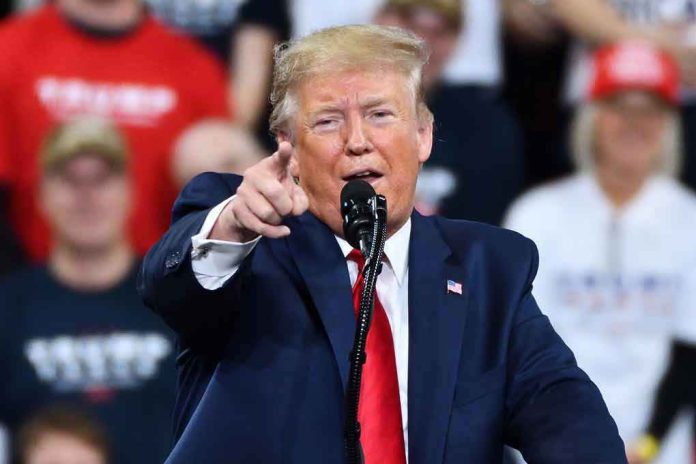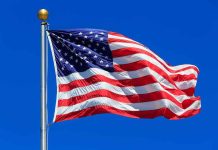
A new controversy over late-night rhetoric threatens the boundaries of free speech, igniting debates on First Amendment rights.
Story Highlights
- Trump labels Seth Meyers’ mockery as “probably illegal,” stirring free speech debates.
- The former president’s comments underscore tensions with media critics.
- No legal actions have been initiated against Meyers or NBC.
- Trump’s remarks reflect ongoing battles with late-night hosts.
Trump’s Ongoing Clash with Late-Night Hosts
Donald Trump, now back in the political spotlight, has once again targeted late-night comedians, with Seth Meyers being his recent focus. On November 1, 2025, Trump took to his Truth Social platform to express his disdain for Meyers, branding him a “deranged lunatic” and questioning the legality of his anti-Trump rhetoric. This event has reignited discussions about the limits of political satire and free speech, a recurring theme throughout Trump’s interactions with media figures.
The incident stems from a segment aired on October 30, 2025, where Meyers mocked Trump’s recent East Asia trip and his speech to U.S. Navy troops. Trump’s reaction, accusing NBC of wasting resources on Meyers, highlights his ongoing tension with late-night hosts and his sensitivity to criticism. This confrontation with Meyers is part of a broader pattern where Trump has previously clashed with other comedians like Stephen Colbert and Jimmy Kimmel.
Legal Implications and Free Speech Concerns
Trump’s suggestion that Meyers’ rhetoric might be “probably illegal” raises significant concerns regarding the First Amendment and the protection of political satire. Legal experts emphasize that political satire enjoys strong protections under U.S. law, warning against any attempts to suppress critical voices in media. Trump’s remarks are seen as a potential overreach, reflecting his ongoing struggle with media criticism.
Free speech advocates argue that Trump’s comments could have a chilling effect on political satire, a vital component of democratic discourse. The tension between political authority and media freedom remains a critical issue, as the entertainment industry navigates the balance between satire and sensitivity.
Impacts on Media and Public Discourse
The controversy surrounding Trump’s remarks against Seth Meyers has broader implications for media freedom and public discourse. While no legal actions have been taken against Meyers or NBC, the incident underscores the volatile relationship between political figures and the media. Late-night hosts may face increased scrutiny, but they also play a crucial role in holding public figures accountable through satire.
For the general public, this situation highlights the importance of protecting free speech and the role of satire in democracy. The ongoing debate over the boundaries of political criticism and media freedom will likely continue, reflecting the polarized nature of contemporary public discourse.
Sources:
Trump Targets New Late-Night Host: ‘Deranged Lunatic’ Seth Meyers, ‘Probably Illegal’
Donald Trump Claims It’s Illegal for Late-Night Host Seth Meyers to Mock Him


